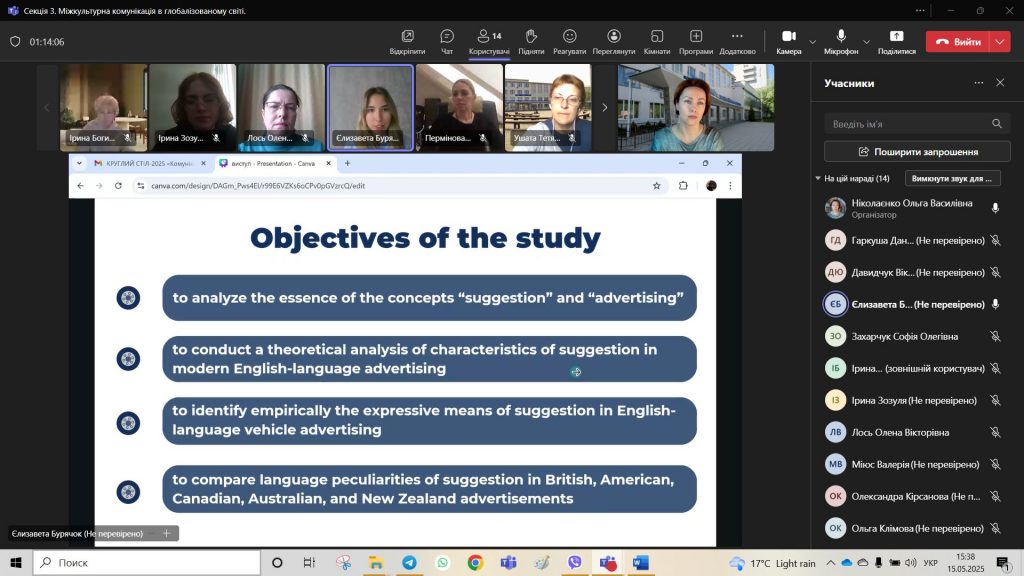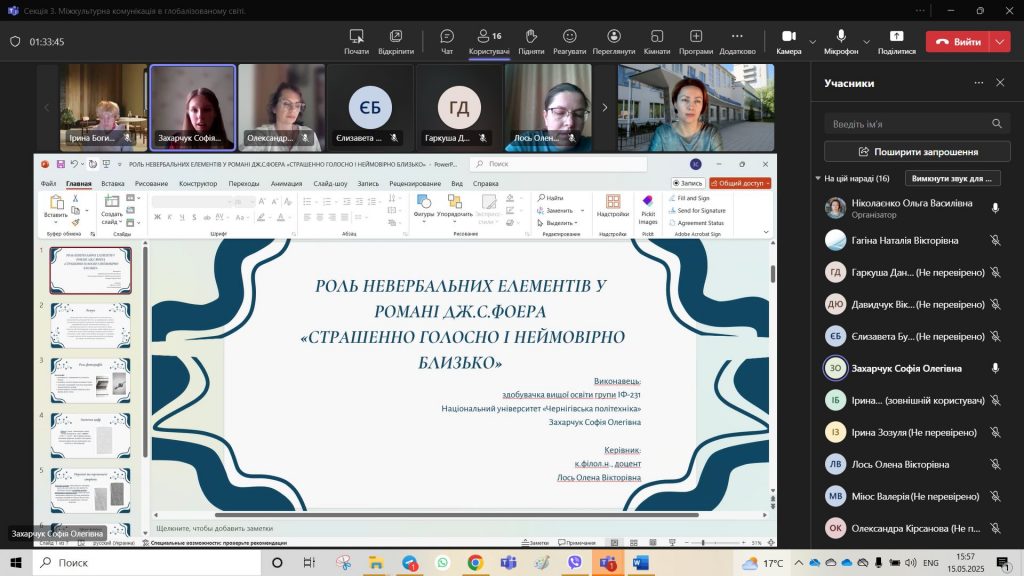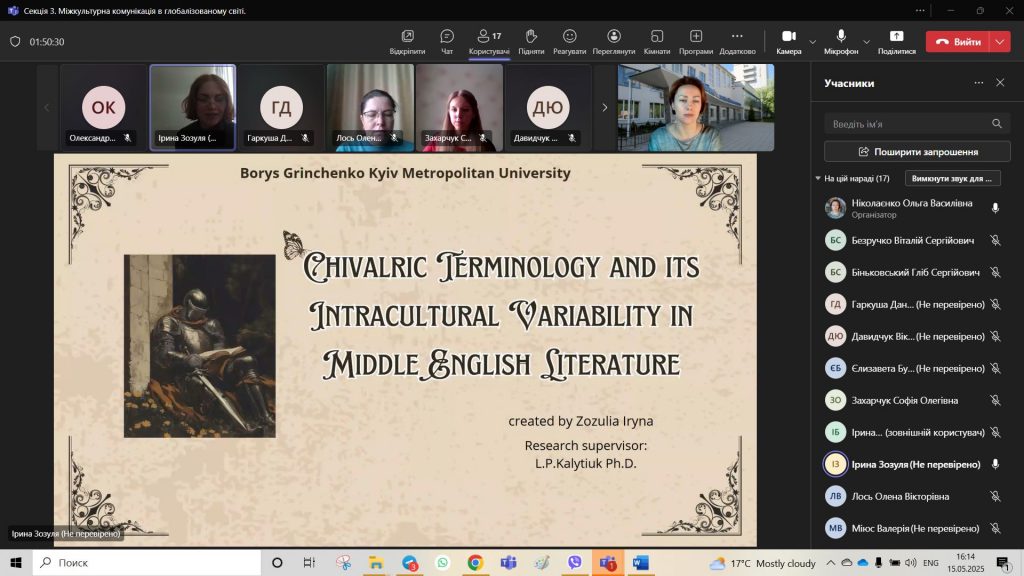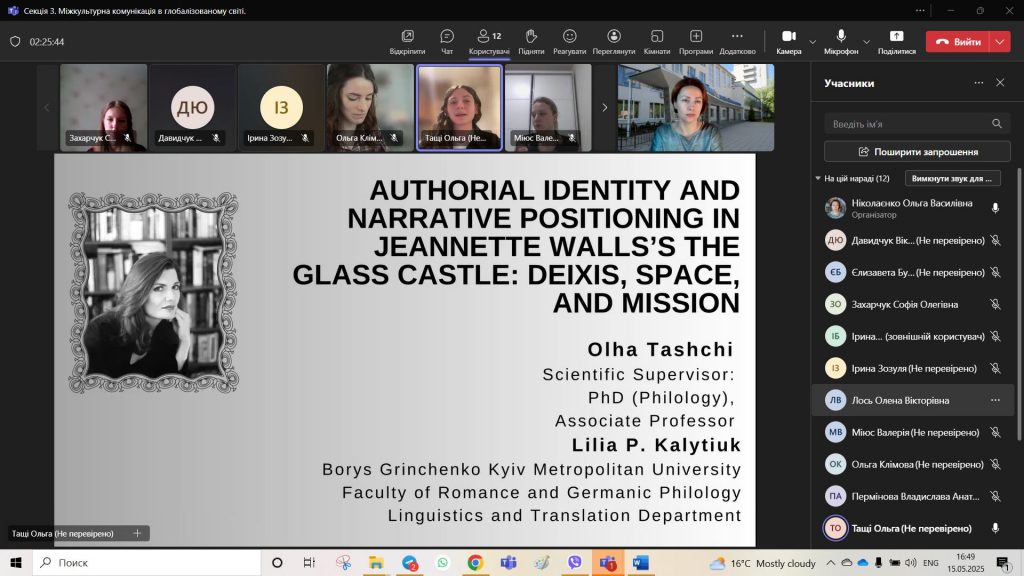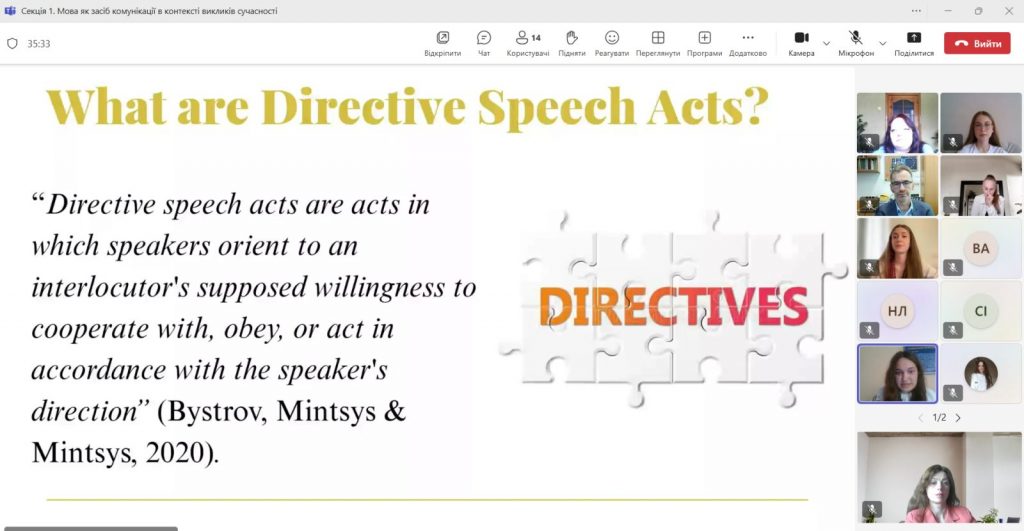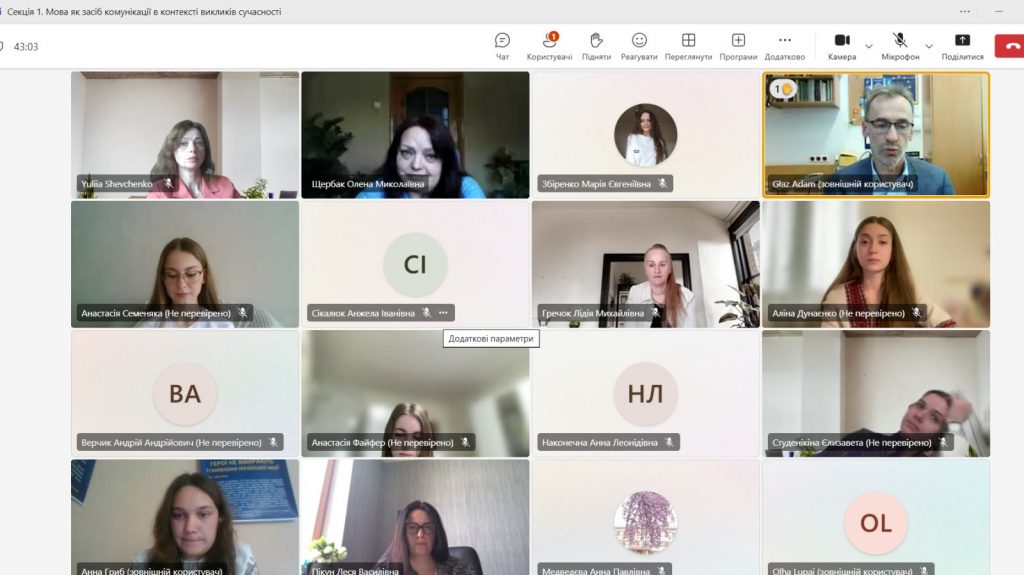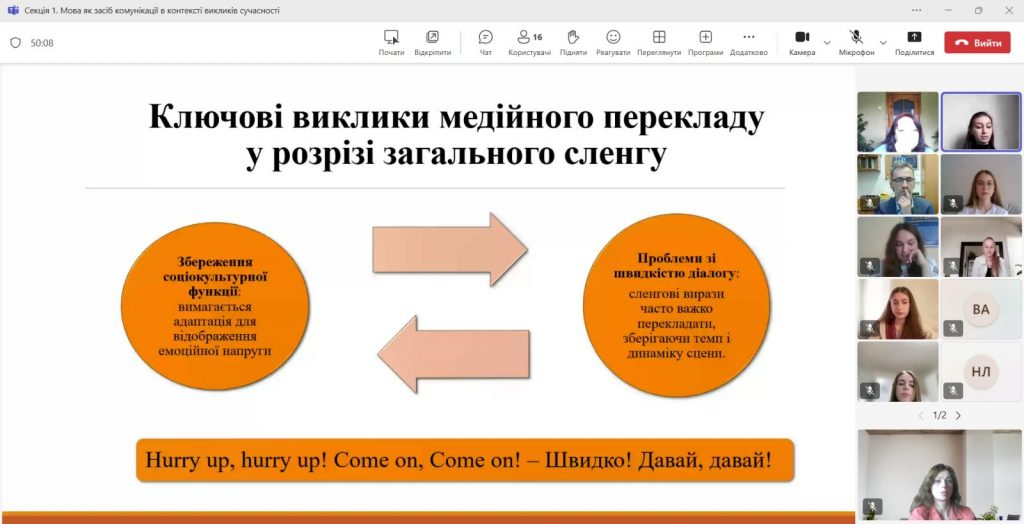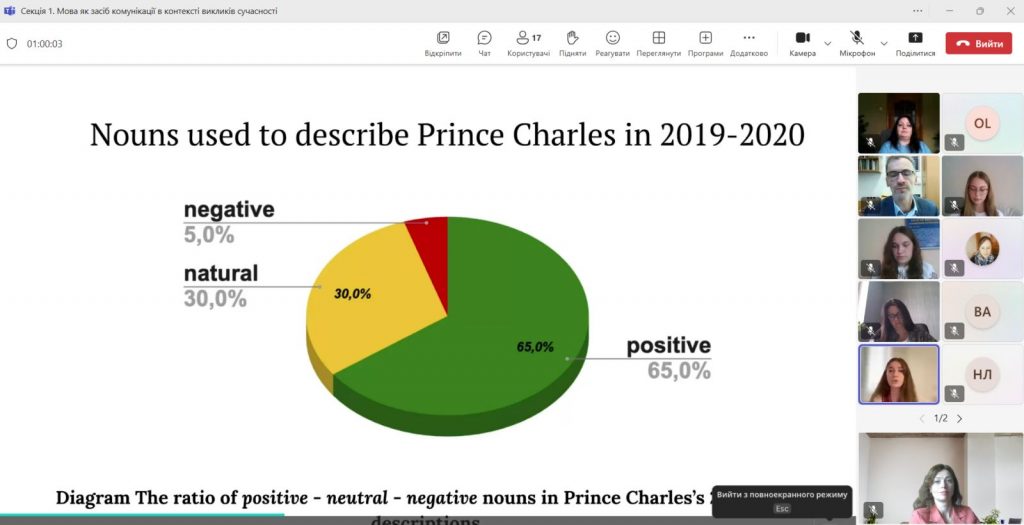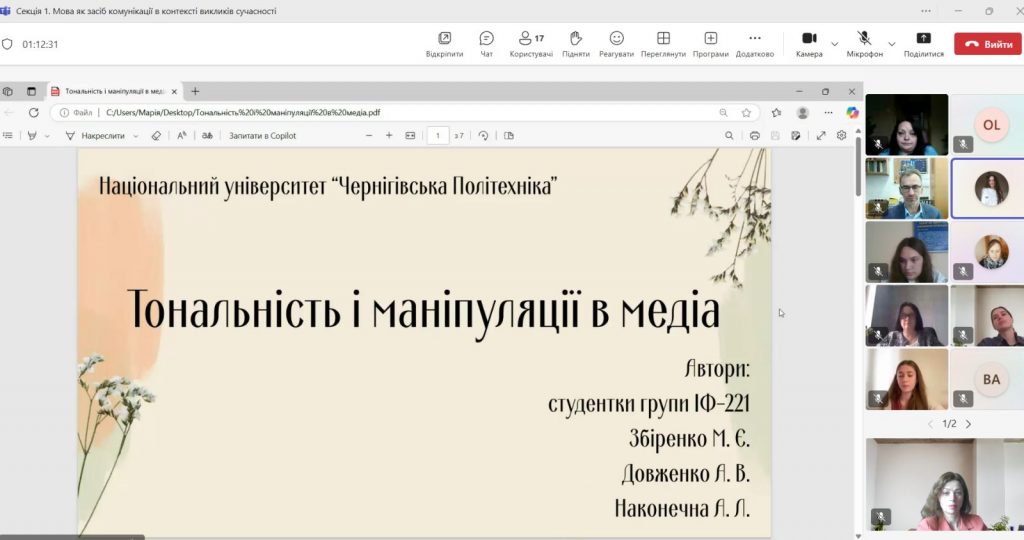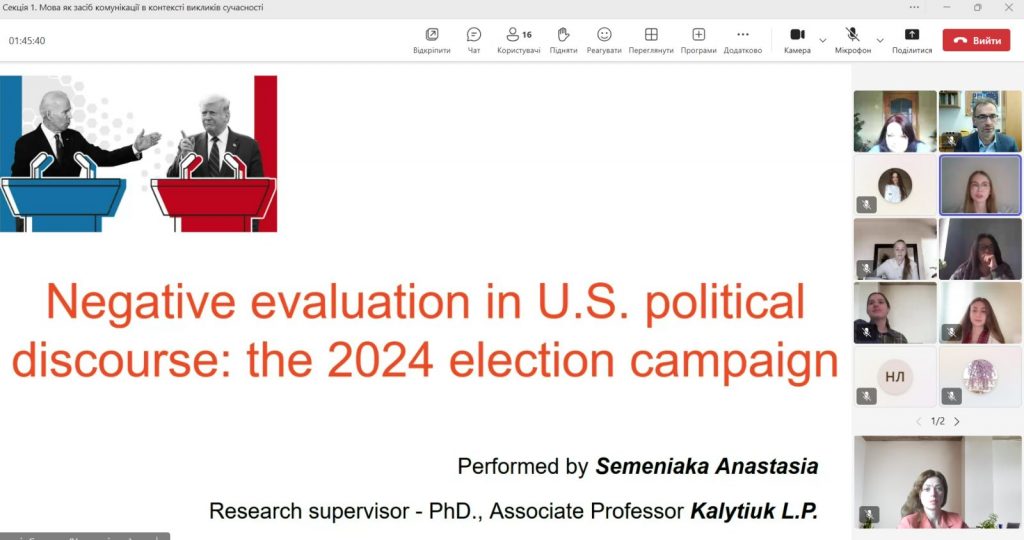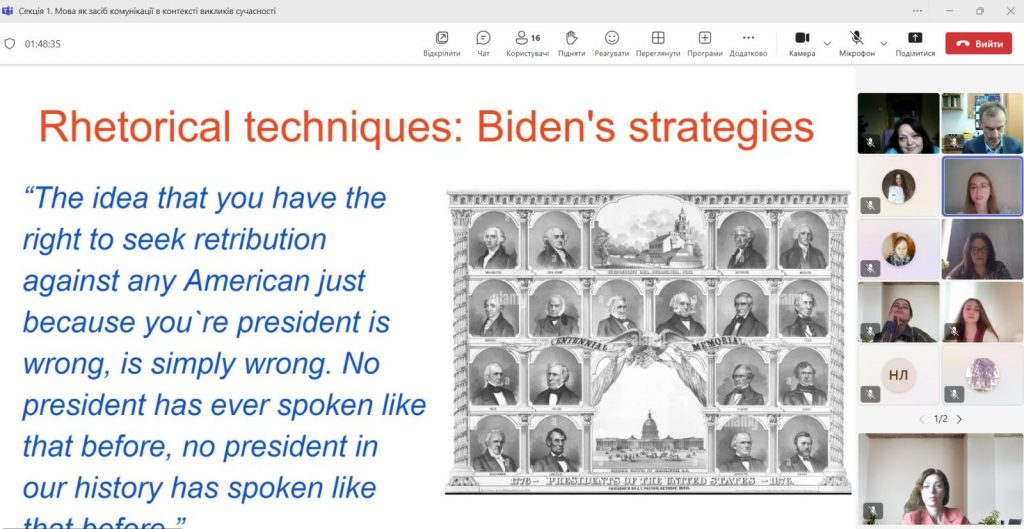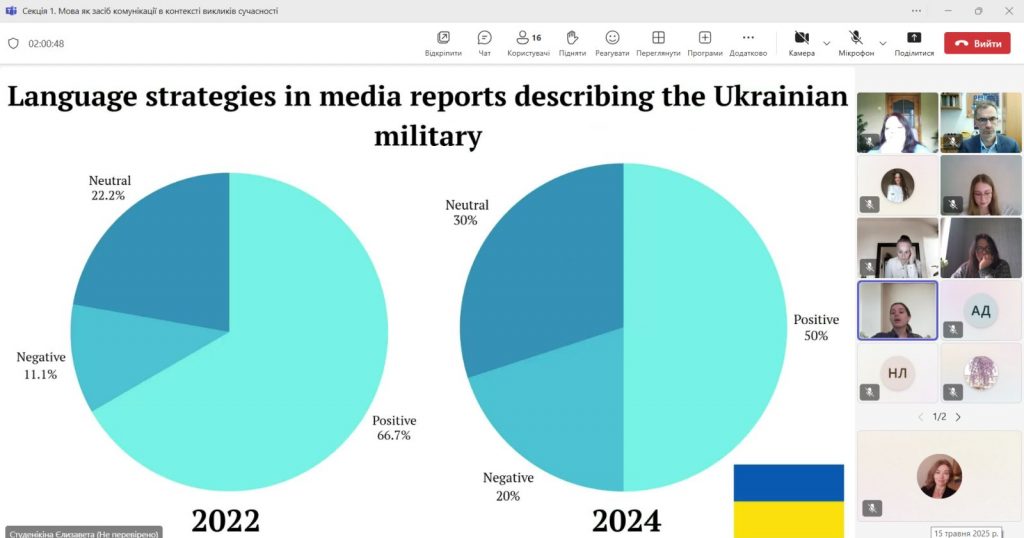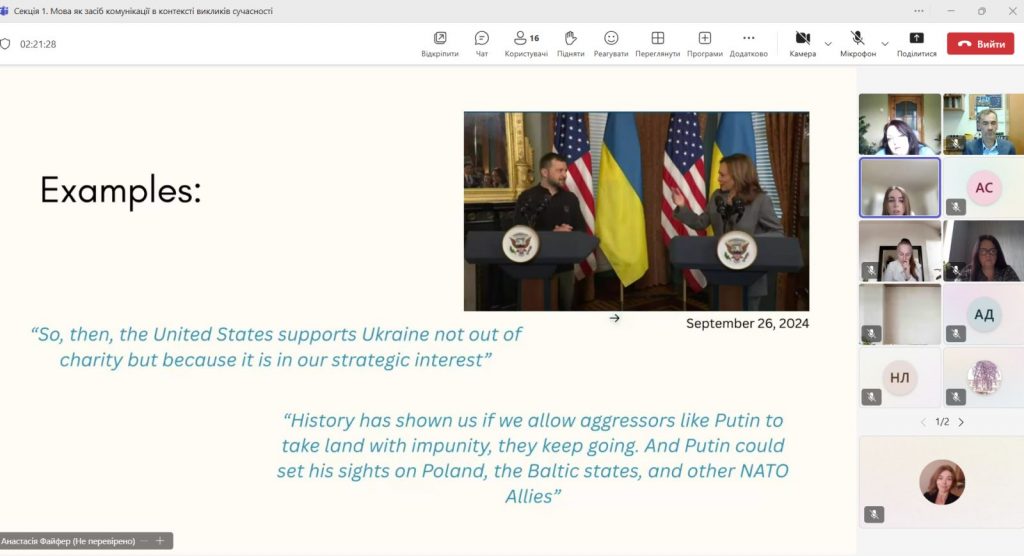NATIONAL SCIENTIFIC-PRACTICAL CONFERENCE “COMMUNICATION IN THE HUMANITARIAN DISCOURSE: CHALLENGES AND PROSPECTS”
On May 15, 2025, the Department of Foreign Philology, in cooperation with the Department of Philosophy and Social Sciences and with the support of Borys Grinchenko Kyiv Metropolitan University, Yuriy Kondratyuk National University “Poltava Polytechnic,” Cherkasy State Technological University, Sumy National Agrarian University, and Maria Curie-Skłodowska University (UMCS, Lublin, Poland), organized and held the All-Ukrainian Scientific-Practical Conference “Communication in the Humanitarian Discourse: Challenges and Prospects.”
The Department of Foreign Philology expresses special gratitude to Dr hab. Adam Głaz, Associate Professor at the Department of English and Linguistics of the Institute of Linguistics and Literary Studies, UMCS (Lublin, Poland), and Director of Doctoral Studies in Literature and Linguistics, for his active participation in the conference, insightful professional comments on student presentations, and sincere interest in supporting young researchers. We deeply appreciate his attention to our students and the valuable recommendations that will serve as a guide in their future academic research.
As part of the conference, the Department of Foreign Philology held two section meetings, during which students presented the results of their own research on current issues in linguistics, translation studies, and intercultural communication.
Section 1: “Language as a Means of Communication in the Context of Contemporary Challenges” included a number of well-researched student presentations focused on the functioning of language in today’s communication landscape. The topics covered linguistic, pragmatic, and translation aspects of humanitarian discourse. Specific presentations explored strategies of language dominance in fiction, challenges in translating informal vocabulary, mechanisms of negative evaluation in American political discourse, and the creation of a politician’s public image through language.
Among the most notable talks were studies on how the Ukrainian and russian armed forces are portrayed in the international media and the challenges of translating fixed expressions in both professional and machine translation. The participants demonstrated a strong theoretical foundation, critical thinking skills, and the ability to apply an interdisciplinary approach.
Section 3: “Intercultural Communication in a Globalized World” focused on intercultural communication and the stylistic and discursive features of language in the context of globalization. Topics included grammatical deviations in contemporary literature, persuasive techniques in English-language advertising, modal and auxiliary verbs, nonverbal elements in fiction, the terminology of knightly culture in Middle English literature, coherence in academic discourse, linguistic means of authorial positioning, peculiarities of translating political abbreviations, and the language organization of English children’s books.
The participants — students from Borys Grinchenko Kyiv Metropolitan University, Yuriy Kondratyuk National University “Poltava Polytechnic,” and Chernihiv Polytechnic National University — showed deep interest in research, academic maturity, strong presentation skills, and the ability to analyze scientific issues.
Overall, both section meetings were held at a high academic level. They showcased the quality of student training, their academic motivation, and their openness to new scientific challenges. Lively discussions following each presentation helped create a constructive atmosphere of academic dialogue and idea exchange among the participants.





